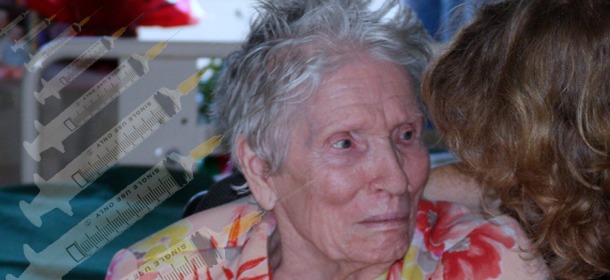Environment
Rats Free a Trapped Buddy Over Eating Chocolate – And Then Share It!
Rats love chocolate—but they love their fellow rats even more.
Humanity has been named for humans and assumed to be a trait unique to us. It’s generally thought that true empathy, caring for the feelings of a fellow, doesn’t exist in any creatures other than people. However, we now have science-driven laboratory evidence that caring for another’s welfare can be as strong in rats as it is in any human being.
While it’s long been known that rats and other animals can behave in ways that benefit each other, it hadn’t been demonstrated that their motivation could be based on feelings for their fellows, so has usually been considered instinctual. The authors of “Empathy and Pro-Social Behavior in Rats“, published in the journal Science, show that there’s little room for doubt. Rats are motivated by feelings for their fellows.

Rats in Empathy Experiment: Blue arrow points to the door that must be opened to free the trapped rat.
The researchers placed a rat inside a small glass cage with a door that could be opened by another rat, but only with difficulty. That cage was placed inside a cage of the sort that the rats normally inhabit. They then placed another rat inside the normal cage. The fear and panic of the trapped rat upset the free one, which frantically explored the cage and tried to open it…and tried and tried, until eventually figuring it out. You can view a brief video [4:05 minutes] produced by the researchers here.
One of the authors, Inbal Ben-Ami Bartal, told Science Daily:
We are not training these rats in any way. These rats are learning because they are motivated by something internal. We’re not showing them how to open the door, they don’t get any previous exposure on opening the door, and it’s hard to open the door. But they keep trying and trying, and it eventually works.
The researchers eliminated other explanations that could explain the behavior. In one of those experiments, done after the free rat had learned how to free his friend and had done so several times, they placed chocolate chips—one of the rats’ favorite foods—in another trap. The free rat could have eaten those yummy chips first, and could have then gone on to free his buddy. But that didn’t happen. The trapped rat was freed first, and then the rat would go for the trapped chocolate. More remarkable still was that the originally-free rat would share the chocolate with the newly-freed rat more than half the time, and would share it approximately equally.
No greater altruism exists than that found in a lover of chocolate who shares it!
Three other possible reasons for the observed behavior were eliminated as potential explanations for the behavior:
- Cries of the trapped rat were too infrequent to cause the free one to have so much concern.
- Curiosity on the part of the free rat can’t explain the behavior, because repetitions of the experiment resulted in the trapped rat being freed as quickly as possible.
- Difficulty in opening the door was too great for coincidence to explain this behavior.
That leaves little beyond empathy to imagine as the explanation for empathetic altruism in rats.
Now, if only we could get researchers who experiment on animals to show some empathy for them … perhaps then we could find a significant difference between them and the animals they treat so badly.
Tagged animal empathy, animal experiments, animals science, big pharma, pseudo-science, pseudoscience, rat empathy, rat experiments, rat science, rats altruism, rats empathy, rats empathy altruism, science
Related Posts
-
http://www.facebook.com/profile.php?id=100000516782041 Swayla Dontcallmeoutmyname New
















